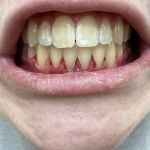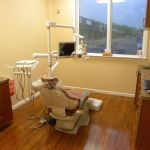Understanding Oral Corticosteroids and Their Use in Children
Oral corticosteroids are medications often prescribed to children for a variety of inflammatory and autoimmune conditions, including asthma, allergic reactions, and certain skin diseases. These drugs work by suppressing the immune system and reducing inflammation, providing relief from symptoms that can significantly impact a child's quality of life.
Despite their effectiveness, oral corticosteroids must be used cautiously. The pediatric population is particularly vulnerable to side effects and complications if these medications are overused or misused. Parents and caregivers need to understand the potential risks associated with prolonged or excessive corticosteroid use to ensure safe treatment.
Short-Term Benefits Versus Risks of Overuse
1. Immediate Relief and Therapeutic Effects
When used appropriately, oral corticosteroids offer quick symptom relief, helping children breathe easier during asthma attacks or reducing severe allergic inflammation. This rapid effect often encourages compliance, especially in acute situations.
However, the desire for fast results can sometimes lead to overuse. Parents might extend treatment duration or increase doses without medical guidance, inadvertently exposing children to adverse effects.
2. Common Side Effects of Overuse in Children
Overusing oral corticosteroids can trigger several side effects, some of which may be severe. Short-term overuse may cause increased appetite, mood swings, difficulty sleeping, and stomach irritation. These symptoms can be distressing for children and their families, complicating daily life.
More serious effects include elevated blood pressure, high blood sugar, and susceptibility to infections due to immune suppression. In young patients, these risks require close monitoring by healthcare providers.
Long-Term Health Implications of Excessive Corticosteroid Use
1. Impact on Growth and Development
One of the most concerning consequences of prolonged oral corticosteroid use in children is growth suppression. Studies have shown that chronic corticosteroid therapy can interfere with bone growth, potentially leading to shorter stature and delayed puberty.
This is particularly troubling because growth delays might not be immediately apparent, often surfacing only after months or years of treatment. Pediatricians emphasize the importance of using the lowest effective dose for the shortest duration to mitigate this risk.
2. Bone Health and Osteoporosis Risk
Chronic corticosteroid use can reduce calcium absorption and decrease bone formation, increasing the risk of osteoporosis even in young children. Fragile bones are prone to fractures, which can affect mobility and long-term health.
Doctors may recommend calcium and vitamin D supplements or alternative therapies to protect bone health when prolonged corticosteroid treatment is necessary.
Psychological and Behavioral Effects Linked to Overuse
Children who overuse oral corticosteroids might experience mood disturbances such as anxiety, irritability, and even depression. These neuropsychiatric effects can be confusing for parents, sometimes mistaken for behavioral problems rather than medication side effects.
There are documented cases where children on long-term corticosteroids exhibited personality changes or sleep disorders, requiring a multidisciplinary approach involving pediatricians, psychologists, and family support.
Real-Life Story: Navigating Corticosteroid Use Safely
Consider the story of 8-year-old Emma from Ohio, who was prescribed oral corticosteroids for severe asthma. Initially, the medication provided quick relief, but after several months of unsupervised increased dosing, Emma experienced mood swings and growth delay. Her pediatrician adjusted her treatment plan, incorporating inhaled steroids and close monitoring, which helped Emma regain stability and continue healthy development.
Emma’s experience highlights the importance of medical supervision and awareness about corticosteroid risks among caregivers.
Guidelines for Safe Use of Oral Corticosteroids in Children
1. Always Follow Medical Advice
Caregivers should never alter the dosage or duration of corticosteroid treatment without consulting a healthcare provider. Medical guidance ensures that benefits outweigh risks and that the child is monitored for side effects.
2. Use the Lowest Effective Dose
Doctors strive to prescribe the minimal dose necessary to control symptoms, reducing the chance of adverse effects. Intermittent or short courses are preferred whenever possible.
3. Monitor for Side Effects
Regular check-ups are essential to observe any growth changes, behavioral shifts, or physical symptoms that could indicate overuse. Prompt communication with the healthcare team helps address concerns early.
4. Explore Alternative Treatments
When appropriate, alternative therapies like inhaled corticosteroids, leukotriene modifiers, or biologics may be recommended to reduce systemic exposure and side effects.
Conclusion: Balancing Benefits and Risks for Your Child’s Health
Oral corticosteroids are valuable medications that can significantly improve children’s health when used properly. However, overuse carries serious risks that must be understood and managed carefully. Parents and caregivers should work closely with pediatricians, remain vigilant about dosing, and prioritize regular monitoring.
For expert advice and support in managing corticosteroid treatments and pediatric health, Dentistry Toothtruth offers trusted resources and professional recommendations tailored to children’s unique needs.






 Dr. James L. Pelletier4.0 (79 review)
Dr. James L. Pelletier4.0 (79 review) Da Vinci Dental Specialists4.0 (312 review)
Da Vinci Dental Specialists4.0 (312 review) Stoneridge Dental4.0 (384 review)
Stoneridge Dental4.0 (384 review) Community Health Centers4.0 (206 review)
Community Health Centers4.0 (206 review) Greenberg Dental & Orthodontics4.0 (1278 review)
Greenberg Dental & Orthodontics4.0 (1278 review) Steve Baerg, DDS5.0 (10 review)
Steve Baerg, DDS5.0 (10 review) The Importance of Oral Health Education During Pregnancy for a Healthy Pregnancy
The Importance of Oral Health Education During Pregnancy for a Healthy Pregnancy Best Tips for Brushing Your Teeth Properly for Healthy Gums: Essential Techniques for Oral Health
Best Tips for Brushing Your Teeth Properly for Healthy Gums: Essential Techniques for Oral Health Why Skipping Dental Checkups Can Lead to Bigger Oral Health Problems
Why Skipping Dental Checkups Can Lead to Bigger Oral Health Problems Advantages of Porcelain Dental Restorations
Advantages of Porcelain Dental Restorations How Can Diabetes Cause Tooth and Gum Problems? Preventing and Managing Oral Health Issues
How Can Diabetes Cause Tooth and Gum Problems? Preventing and Managing Oral Health Issues Healthy Habits for Promoting Good Oral Health and Hygiene: Tips for a Healthy Smile
Healthy Habits for Promoting Good Oral Health and Hygiene: Tips for a Healthy Smile